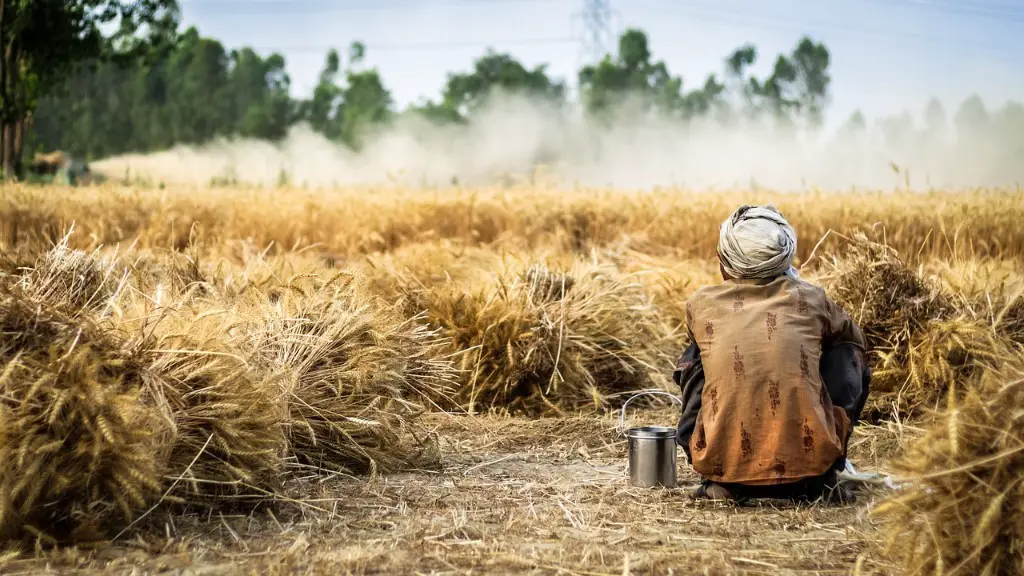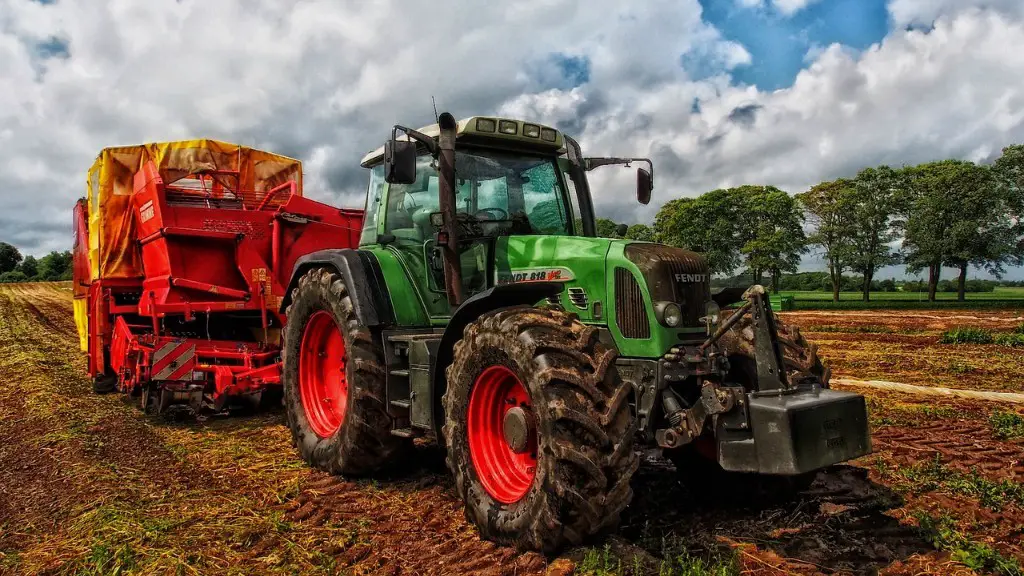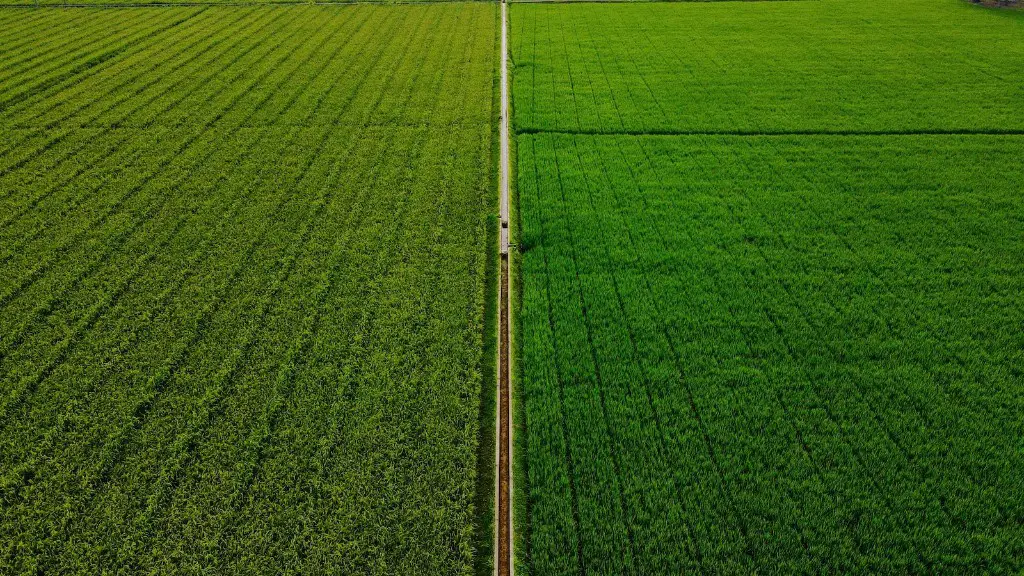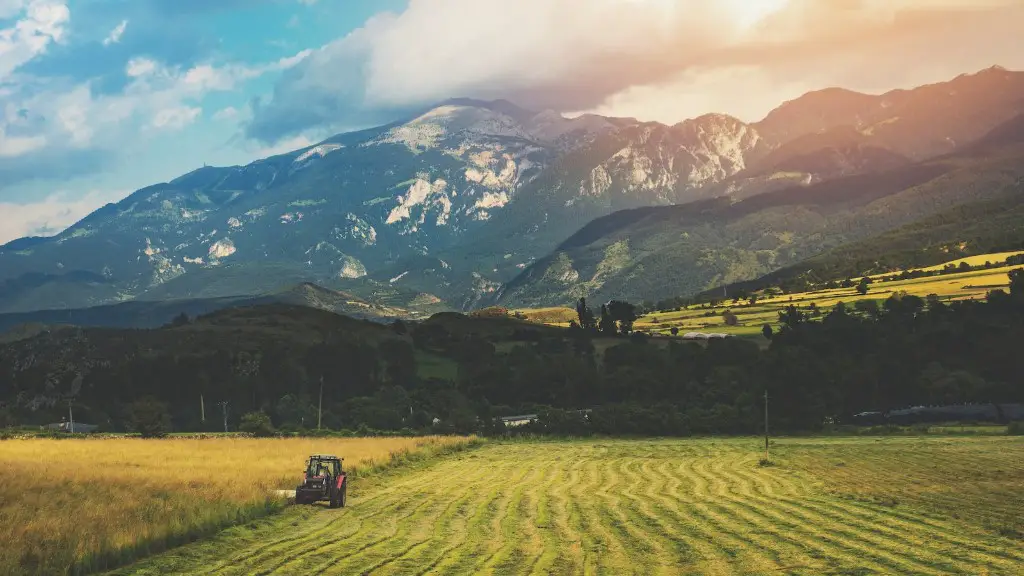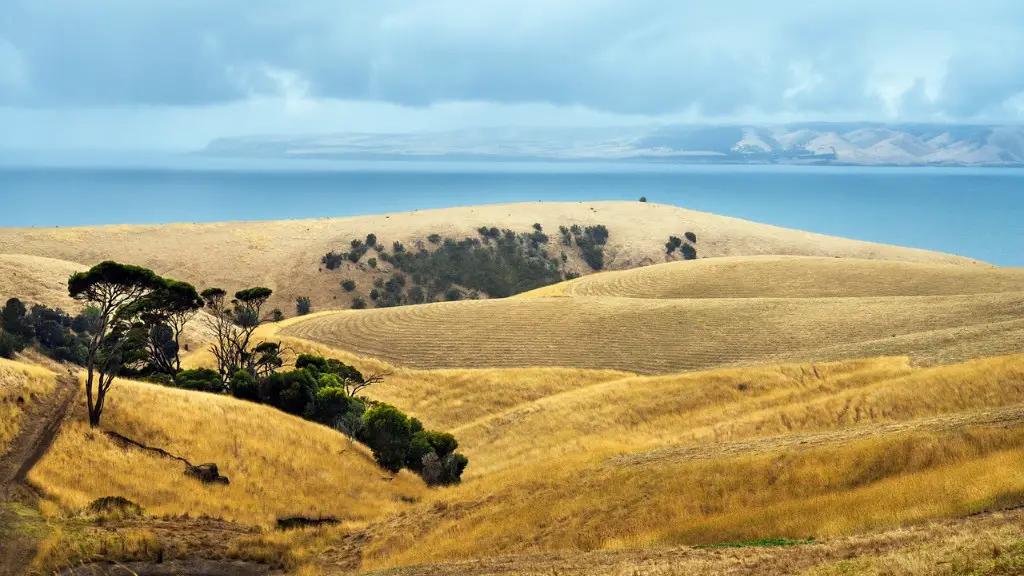Agriculture is thought to have originated in Africa over 10,000 years ago. The earliest evidence of agriculture has been found in the form of primitive tools and pottery in the region known as the Fertile Crescent, which stretches from the Nile River Valley in Egypt to the Tigris and Euphrates rivers in Mesopotamia. It is believed that early African farmers first cultivated sorghum, rice, and millet.
The first evidence of agriculture in Africa comes from 10,000 BC with early signs of farming in the Sahara Desert. Evidence suggests that early farming practices were developed independently in different regions across the continent.
Where was agriculture first practiced in Africa?
African agriculture is thought to have originated independently from other regions of the world. It is believed to have first appeared in the fertile plains on the border between present-day Nigeria and Cameroon. It is possible that there was a “Garden of Eden” there that “trapped” people into early farming.
The Bantu people were a group of farmers who migrated out of West Africa starting around 1000 BCE. They were responsible for spreading farming across the rest of the continent, and some of them traveled along the Sahel, a strip of land just below the Sahara. This played a role in the great migration of farmers out of West Africa.
Where did agriculture begin
The Fertile Crescent is one of the most important regions in the history of agriculture. It is thought to be where crops were first domesticated, and it is thought that early farming methods were developed here. The Fertile Crescent was also the birthplace of the first civilizations in the Middle East, such as the Sumerians and the Babylonians.
It is thought that agriculture on the African continent developed independently in three different areas: the Ethiopian highlands, the Sahel, and West Africa. The Nile River Valley is thought to have developed from the original Neolithic Revolution in the Fertile Crescent.
What country is the birthplace of agriculture?
Agriculture originated in a few small hubs around the world, but probably first in the Fertile Crescent, a region of the Near East including parts of modern-day Iraq, Syria, Lebanon, Israel and Jordan. The Fertile Crescent was so named because of its rich soil and favorable climate, which allowed early farmers to thrive. Over time, agriculture spread to other parts of the world, including China, India and the Americas. Today, farming is a vital part of many cultures and continues to play a significant role in human society.
The first farmers in southern Africa were Bantu-speakers and archaeology shows that they entered southern Africa between 2 000 and 1 700 years ago. These first farmers brought with them new technologies and ways of life that allowed them to adapt to the local climate and environment. One of the most important things that they introduced was agriculture. This allowed them to settle in one place and to develop complex societies. We know about the first farmers of southern Africa from archaeological sites that they left behind. These sites contain evidence of their houses, tools, and pottery. By studying these sites, we can learn about the everyday lives of the first farmers.
Who first started agriculture?
The Egyptians were among the first peoples to practice agriculture on a large scale, starting in the pre-dynastic period from the end of the Paleolithic into the Neolithic, between around 10,000 BC and 4000 BC. This allowed them to settle in one place and develop civilizations. Agriculture allowed for the domestication of plants and animals, which led to the development of civilizations. The Egyptians developed irrigation systems to water their crops, and they developed tools and techniques to improve agriculture.
Pastoralism is the oldest form of food production in sub-Saharan Africa. It began in North Africa about 8,000 years ago and slowly spread south during the early to mid-Holocene, when rainfall in the Sahara region was much higher than it is today. Pastoralism allowed early African societies to adapt to their environment and make use of available resources. It also allowed for the development of trade and other forms of social and economic interaction.
When did the agricultural revolution began in Africa
The Neolithic Revolution was a time when people began to move away from a purely hunting and gathering lifestyle and started to domesticate plants and animals. This led to the development of agriculture, which in turn allowed for the growth of civilizations. The Neolithic Revolution is thought to have begun in the Fertile Crescent region of the Middle East, and it eventually spread to other parts of the world.
The history of agriculture in Nigeria dates back to the pre-colonial era when subsistence agriculture was the dominant form of agriculture. On the eve of European colonial rule, food production was a prominent feature of agriculture and there was self-sufficiency in the food supply. However, with the advent of colonialism, agriculture in Nigeria changed dramatically as new crops and farming techniques were introduced by the colonial powers. Today, agriculture is a major contributor to the Nigerian economy and employs a large number of people.
What was the first agricultural civilization?
Agrarian civilizations first began to develop around 3200 BCE in Mesopotamia, in Egypt and Nubia, and in the Indus Valley. These early agrarian civilizations were characterized by the domestication of plants and animals, the development of early agricultural technologies, and the rise of early urban centers. In China, the first agrarian civilization developed a bit later, around 2000-1000 BCE. Similarly, the first agrarian civilizations in Central America and along the Andes Mountains of South America also developed around 2000-1000 BCE.
Agriculture has a long and complex history that is firmly intertwined with the history of human civilization itself. It is believed that the first agriculture developed at the end of the last Ice Age, around 11,700 years ago. Since then, a wide variety of plants and animals have been independently domesticated in different places and at different times. Agriculture has played a vital role in the development of human civilization, and it continues to do so today.
Where is most agriculture in Africa
Africa is a continent with a lot of agricultural potential. South Africa and Nigeria are two of the countries with the largest agricultural areas. They both have a lot of land that is devoted to growing crops. South Africa has around 96 million hectares of land devoted to agriculture, while Nigeria has around 69 million hectares. These two countries produce a lot of food for the people of Africa.
In terms of land that is capable of agricultural production, the Congo, Anglo-Egyptian Sudan, Angola, Nigeria, and Tanganyika have the most land available, followed by Portuguese East Africa, Northern Rhodesia, the Union of South Africa, and Madagascar. This land is important for agricultural production, as it can be used to grow crops and raise livestock.
What is the oldest agriculture in the world?
The wild progenitors of crops including wheat, barley, and peas are traced to the Near East region. Cereals were grown in Syria as long as 9,000 years ago, while figs were cultivated even earlier; prehistoric seedless fruits discovered in the Jordan Valley suggest fig trees were being planted some 11,300 years ago. This region is thus considered the cradle of agriculture.
A new study has found that farming was actually “invented” much earlier, some 23,000 years ago, in a region known as the “Fertile Crescent” between the Tigris and Euphrates rivers. This is the same region where the first known human civilizations emerged.
The study was based on analysis of plant remains found in archaeological sites in the Fertile Crescent. The findings suggest that early humans were already experimenting with plant husbandry and animal domestication much earlier than previously thought.
This is an important discovery because it changes our understanding of the origins of human civilization. It also has implications for our understanding of human evolution, as the ability to domesticate plants and animals would have been a key factor in the development of complex societies.
Who was the first farmer in the Bible
Cain and Abel are the first two sons of Adam and Eve, and their story is recounted in the biblical Book of Genesis. Cain, the firstborn, was a farmer, while his brother Abel was a shepherd. One day, the two brothers offered sacrifices to God: Cain offered some of the produce from his farm, while Abel offered one of his sheep. God favored Abel’s sacrifice over Cain’s, and Cain became very angry. In a fit of jealousy and rage, Cain killed his brother. For his crime, God banished Cain from the land and cursed him to wander the earth forever. As a result, Cain became the world’s first murderer.
The first domesticated cattle in Africa are thought to have arrived from the Near East, perhaps as early as 7800 years ago. However, in the 1980s, a few archaeologists began to argue that inhabitants of northeastern Africa had domesticated cattle independently some 10,000 years ago. This is still a controversial topic, but the evidence does seem to suggest that African cattle were domesticated independently from those in the Near East.
Warp Up
Agriculture started in Africa around 10,000 BC. It is thought to have started independently in different regions of the continent.
There is still debate about where agriculture first began in Africa, but many experts believe it was in the Sahel region, which is a band of semi-arid land south of the Sahara desert. The early African farmers probably used a type of irrigation to water their crops, which allowed them to grow crops in a dry climate. Africa’s agriculture helped to support a growing population and led to the development of early civilizations.
